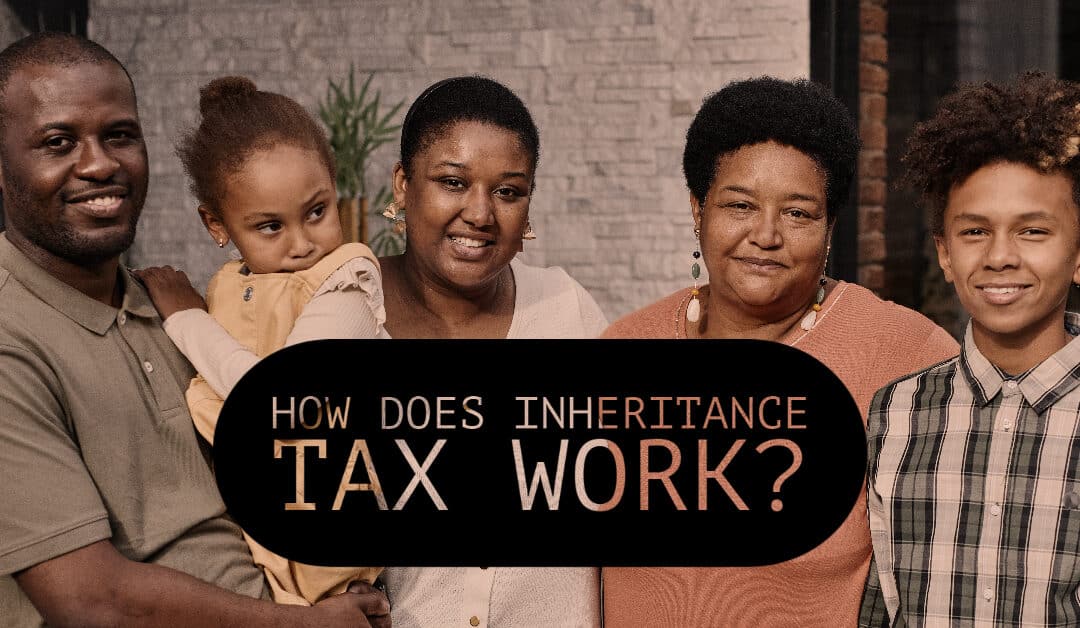If you name someone as an heir in your will, you may wonder if they will need to pay inheritance taxes. The short answer is “No.” However, there are types of taxes to watch out for. You may pay taxes if you give a significant monetary gift to an heir while still living. Let’s look at how estate and inheritance tax in NC works.
No Inheritance Tax in NC
There is no inheritance tax in NC, so if you give $18,000 to your niece at your death, you don’t need to worry about your estate or her paying taxes on it. However, there are sometimes taxes for other reasons.
Other Tax Issues
According to the new 10-year payout rule, inherited IRAs that distribute large amounts of income each year may require heirs to pay taxes on distributions.
“IRAs and inherited IRAs are tax-deferred accounts. That means that tax is paid when the holder of an IRA account or the beneficiary takes distributions—in the case of an inherited IRA account. IRA distributions are considered income and, as such, are subject to applicable taxes.” (1)
Also, you may owe capital gains taxes on some types of trusts. “Beneficiaries of a trust typically pay taxes on the distributions they receive from the trust’s income, rather than the trust itself paying the tax.” Beneficiaries pay taxes yearly based on the K-1 form, which indicates how much of their distribution is taxable. (2)
Consulting your estate planning attorney or financial advisor if you will give trusts or IRA’s as bequests is always a good idea.
Your Estate and Probate
All of their property and assets are called their “estate” when someone dies. It is the job of a probate court to settle the estate by paying the bills and taxes. The personal representative chosen by the probate court settles the estate.
Probate can move slowly because there are so many duties that a personal representative must undertake. With the involvement of the court and creditors, sorting it all out takes time.
Personal representatives hold personal liability for mistakes made in settling an estate. The oath they take as a personal representative identifies their fiduciary duties to act in the best interests of the beneficiaries and heirs of the estate. Their job is to act in the best interests of the beneficiaries. If you name an executor in your will, you decide who the personal representative will be. When you don’t name someone in a will, the court picks someone.
If your assets are all in trust, your estate will bypass probate, and your trustee distributes your estate outside of court interference.
How Long Until My Heirs Receive Their Inheritance?
The length of time for a probate court to settle an estate and distribute inheritances can last from a few months to years. A personal representative works to inventory the estate and pay all creditors before distributing inheritances. If the estate is complex or family members file frivolous lawsuits, the waiting time increases.
For example, let’s say you pass away and bequest money to all heirs in similar amounts. However, your estate does not have enough to cover the legacies. In that case, the personal representative prorates the bequests to make the inheritances as fair as possible.
Usually, a personal representative makes a final account within a year. If they do not finalize the estate within one year, they may file a request for the estate to remain open. They must then file an annual accounting every year after that until the final accounting.
What if My Spouse or Child Will Need An Allowance?
The surviving spouse or dependent child of a deceased individual can make an application for a year’s allowance with the clerk of court in the county where you resided. They can apply at any time within the first year after the death. The clerk or magistrate holds a hearing and provides an allowance from cash or personal property or a combination of both.
Your spouse and child will receive the allowance as a priority claim before any other claims against the estate are paid. So, even if creditors rightfully claim the estate owes them, your spouse or child’s claim for an allowance comes first.
The amount of the spousal allowance is $20,000 for a surviving spouse. A surviving child may receive an allowance of $5,000.
We Can Help
If you are planning for your family’s future and need a well-thought-out estate plan, see our attorneys at Cape Fear Law. We take the time to consider every aspect of your unique financial situation and how best to maximize your estate in the future for your heirs. Contact us today and set up a free initial consultation to find out how we can help you make a plan for the future.
Footnotes:

